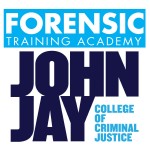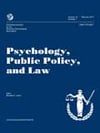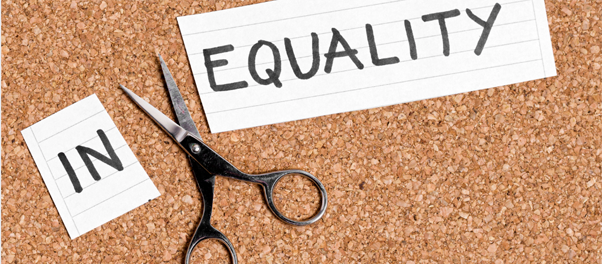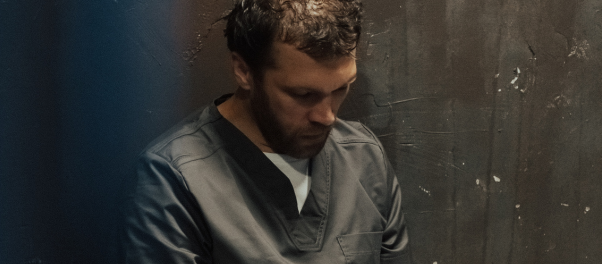
Forensic science match evidence presented by a highly experienced examiner with an impressive background was judged to be stronger and more persuasive than identical evidence presented by a less experienced examiner with a less impressive background. This is the bottom line of a recently published article in Psychology, Public Policy, and Law. Below is a summary of the research and findings as well as a translation of this research into practice.

Featured Article | Psychology, Public Policy, and Law | 2016, Vol. 22, No. 4, 401-413
Science, Technology, or the Expert Witness: What Influences Jurors’ Judgments About Forensic Science Testimony?
Authors
Jonathan J. Koehler, Northwestern University
Michael J. Saks, Arizona State University and University of Haifa
N.J. Schweitzer, Arizona State University
Dawn E. McQuiston, Wofford College
Abstract
The impact of forensic science evidence on jurors’ judgments is critically important to the criminal justice system. The assignment of low or high weight to such testimony can be the difference between acquittal or conviction. Many of the traditional forensic sciences (e.g., fingerprints and bitemarks) draw their strength largely from the subjective judgments of examiners who testify about whether evidentiary prints or other markings are consistent with (or “match”) known markings from a person or object. In an online experiment (Experiment 1) and a realistic jury simulation using actual jurors or jury-eligible adults (Experiment 2), this article investigates 3 factors that might affect how jurors think about and use forensic science evidence. These factors are (a) whether the forensic science method had been scientifically tested, (b) the forensic scientist’s background and experience, and (c) the sophistication of the forensic science technology. The results show a strong and consistent effect for examiner background and experience on evidence strength judgments, no effect for forensic technology sophistication, and a limited and inconsistent effect for scientific testing (present in the online experiments, absent in the realistic jury simulation). These findings raise concerns about potential undue influence of examiner background and experience on jurors’ judgments and lack of clear influence of scientific testing. The implications of our findings for criminal justice practices and policies are considered.
Keywords
Evidence, experience, forensic science, jury decision making, testing
Summary of the Research
“The research presented here seeks to discover how lay jurors are influenced by forensic science expert testimony that varies along the three dimensions …(method testing, examiner experience, and technological sophistication of method)…To explore the possible effects of these variables, we conducted two experiments, first online (Experiment 1) and then using a videotaped trial with deliberating groups of community members (Experiment 2)…for both experiments, we examined the impact of scientific testing of a forensic method, an examiner’s experience, and the technological sophistication of the method on simulated jurors’ judgments about the forensic science testimony” (p. 403).
“Experiment 1 utilized written materials administered to an online sample of community member participants. We presented one of two separate trial summaries (a sexual assault case involving bitemark evidence and an attempted murder case involving fingerprint evidence) to a sample of participants…Within each summary, we manipulated three independent variables (Forensic Technique Scientifically Tested: yes or no), (Expert’s Experience: high or low), (Technology Level of the Forensic Technique: high or low) …For both trials, we created a ~ 700 word summary that included background information, direct examination testimony from a forensic scientist, and cross-examination of that expert. In both trials, we experimentally manipulated the amount of scientific testing the examiner’s technique had undergone, the experience of the examiner, and the technology used by the examiner” (p. 403-404).
“The results for the bitemark and fingerprint cases were similar in two different criminal case scenarios. In both cases, jurors were sensitive to whether the forensic technique in question had been scientifically tested. Techniques that had been scientifically validated were viewed as providing stronger evidence of identity. However, this effect did not carry through to the guilt [determinations]… in both cases, a majority of jurors voted to acquit in all experimental conditions” (p. 405-406).
“Examiner experience was important to our jurors on both evidence and guilt. This result supports the possibility that experience is a powerful, central trait for people who are called upon to assess the value of information that another person or a process has provided…Experience may also serve as an antidote to the uncertainty that exists when people tell us things that we cannot evaluate or interpret for ourselves. In our study, it appears that jurors leaned on the experience of the testifying forensic scientist to guide their assessments of the soundness of his findings” (p. 406).
“In our second experiment, we went to great lengths to provide mock jurors with a more ecologically valid experience that included realistic trial procedures, video testimony, and group deliberations…Using the same conceptual framework as the materials presented to the online participants, we created a ~7,500 word trial transcript of the fingerprint case used in Experiment 1. We developed the fingerprint case rather than the bitemark case for the video because fingerprint evidence is a more common, relatively well-understood forensic science, and because the presence of a match in this case is not necessarily dispositive on the matters of guilt due to the potential ambiguities about when the print was deposited…As in Experiment 1, the eight trial videos differed in whether the forensic method had or had not been tested, whether the examiner was highly experienced or not, and whether the technology employed by the examiner was sophisticated or simple” (p. 408).
“As in the online experiment, jurors assigned more weight to the forensic science evidence when the testifying witness was a highly experienced examiner. Why do we find effects for experience but not for testing? One possibility is that people believe fingerprint analyses are quite reliable when performed by the right person. Under this belief system, an examiner who has a great deal of experience is also one who has great expertise and competence (p. 409).
“This finding suggests that jurors use the background and experience of an expert as a proxy for the value of the evidence the expert provides. Such a process is consistent with heuristic models that are premised on the idea that decision makers who lack the motivation or ability to assess the value of available substantive information rely on easily understood peripheral cues…to judge the quality of that information. This process is also consistent with literature that shows an expert witness’ perceived credibility is influenced by the witness’ status and experience level and such noncontent cues as likability and confidence” (p.410).
Translating Research into Practice
“Our research could have implications for criminal justice policies and practices. First, if jurors are responsive to peripheral cues rather than content cues when evaluating forensic evidence, then courts need to be especially vigilant about enforcing their gatekeeping duties under Daubert v. Merrell Dow Pharmaceutical, Inc. The danger in failing to apply Daubert’s tough reliability test on the front end is that jurors will presume that admitted forensic evidence is accurate evidence, and cross-examination that exposes substantive scientific weaknesses will be ignored. Second, jurors’ apparent belief that evidence provided by more experienced forensic scientists is more accurate and valuable than the identical evidence provided by less experienced forensic scientists has no basis in reality. As noted earlier, research on expertise finds that experience and credentials are a poor predictor of accuracy, and forensic science does not appear to be an exception” (p. 411).
“If future research confirms jurors’ lack of sensitivity to something so important as scientific validation or lack thereof, along with the excessive value jurors place on examiners’ experience and qualifications, then courts, legislatures, rules committees, and scientific bodies charged with making policy recommendations would be wise to promote policies, rules and instructions that minimize the significance of a forensic expert’s background, and emphasize the quality and extent of scientific testing of the forensic techniques being used…Moreover, attorneys could play a more active role in regard to these issues by emphasizing these matters in their closing arguments and by asking courts to provide jurors with appropriate instruction” (p. 411).
Other Interesting Tidbits for Researchers and Clinicians
“Deliberation had little impact on jurors’ responses to our key dependent measures. For the most part, jurors felt the same way about the evidence and the likely guilt of the defendant following deliberation as they had heading into deliberation…One reason why deliberation has little impact may be that people think through the implications of the evidence on their own prior to deliberation, particularly when expressly invited (by our predeliberation questionnaire) to do so. At the same time, we note that deliberation did change the verdicts of nearly one out of five jurors, almost exclusively moving them from a predeliberation verdict of guilty to a postdeliberation verdict of not guilty. This result is consistent with a few other studies that indicated that deliberation decreases conviction rates. Though not of central concern in the present study, continuing research is needed to identify the conditions under which deliberation alters individuals’ predeliberation preferences” (p. 409-410).
“A word of caution about our findings related to experience: we varied a number of facets of the forensic examiner’s experience simultaneously to provide study participants with an examiner who would be seen as either very experienced or very inexperienced. Our data do not speak clearly to the amount of experience required to persuade jurors to abide by the word of the examiner. Nor do our data speak to which facets of experience (e.g. amount of training, cases worked, courtroom appearances) are more and less influential. This refinement is left for another study…” (p. 410).
Join the Discussion
As always, please join the discussion below if you have thoughts or comments to add!






















